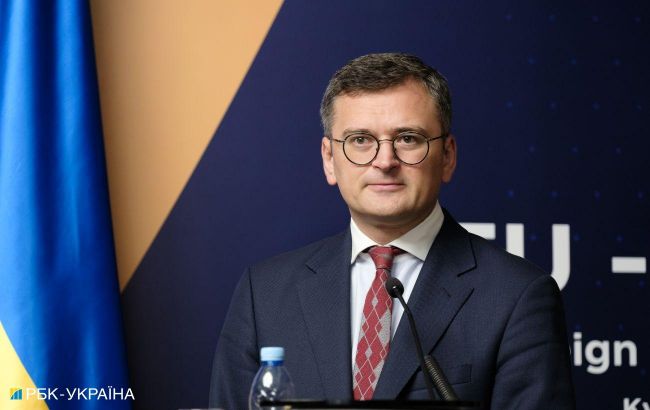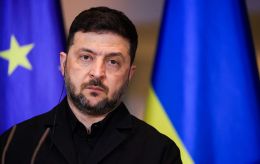Ukraine aid hesitation will put Russia in better position - Ukrainian Foreign Minister
 Dmytro Kuleba, Minister of Foreign Affairs of Ukraine (Vitalii Nosach, RBC-Ukraine)
Dmytro Kuleba, Minister of Foreign Affairs of Ukraine (Vitalii Nosach, RBC-Ukraine)
Hesitations to help Ukraine will put Russia in a much better position to continue the war, according to Foreign Minister Dmytro Kuleba in an interview with The Kyiv Independent.
Europe does not know how to fight
Commenting on the slowdown in aid from the European Union and the United States, Dmytro Kuleba is confident that Ukraine will receive it, but the timing is "up in the air." He is also generally optimistic about the effectiveness of sanctions and the West's attempts to hinder the Russian military-industrial complex.
The Minister is much more critical of Europe's ability to produce weapons for itself and Ukraine.
"Europe doesn't know how to fight wars. The production of weapons is not the most popular area of business. Unfortunately, our friends spent too much time deliberating on how and when to ramp up their production of weapons and ammunition," the Minister explains.
Russia may be in a better position
According to Kuleba, Ukraine will continue to receive assistance from the United States. The current slowdown is due to discussions about the US border with Mexico.
"But that should bring us to a broader issue. What is better? Not to be a part of the debate and be forgotten, or to be a part of (a domestic policy) debate and eventually win it," Kuleba says.
Commenting on the risk of Donald Trump's victory in the upcoming presidential election for Ukraine, Kuleba explains that it would cost additional lives only to have the new US government eventually resume aid.
"If the aid doesn't come, Ukraine will not give up fighting, but Russia will be in a much better position to fight. And it means that Russia will be in a better position to break through our lines, occupy more territories, kill more Ukrainians, and inflict more damage on our economy and infrastructure," the Minister says.
The Minister notes that today politicians are faced with a choice - to score political points by blocking, limiting, or slowing down aid to Ukraine and face even more bloodshed, or to continue to help and avoid worsening the situation.
EU assistance
In particular, Kuleba is confident that the EU will eventually provide the promised funds. However, it may take more time and a different approach.
"I want to make it very clear that we see a trend in the EU that member states have begun to rely heavily on unilateral deliveries, avoiding the pan-European mechanism. In the end, it doesn't matter where support comes from, whether it's on a bilateral basis or through the EU mechanism," Kuleba adds.
Assistance to Ukraine from the US and the EU
The European Union
Last year, the European Union proposed to allocate 50 billion euros for Ukraine until 2027. For such a decision to be approved, absolutely all countries need to agree, but during the last meeting Hungary vetoed it. As Kuleba said earlier, the EU would eventually approve the funding with or without Budapest.
United States of America
Congress failed to approve President Joe Biden's request to allocate more than $100 billion for national security needs by the end of 2023, which included more than $60 billion for Ukraine.
The main stumbling block was Republicans who refused to support the initiative. They demanded that the White House include their proposals for strengthening border security in its request.
Yesterday, December 27, US Secretary of State Anthony Blinken announced that the United States had provided Ukraine with a $250 million military aid package.

